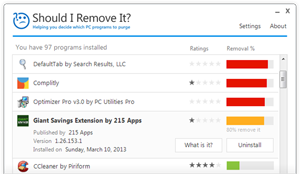Import table
advapi32.dll
RegSetValueExA, RegQueryValueExA, SetSecurityDescriptorDacl, InitializeSecurityDescriptor, RegisterEventSourceA, DeregisterEventSource, ReportEventA, ReportEventW, RegConnectRegistryA, RegOpenKeyExA, RegCloseKey, RegCreateKeyExA
kernel32.dll
WideCharToMultiByte, MultiByteToWideChar, GetVersionExA, ExitProcess, ReadFile, CreateMutexA, WaitForSingleObject, ReleaseMutex, InitializeCriticalSection, DeleteCriticalSection, EnterCriticalSection, LeaveCriticalSection, LoadLibraryA, SetLastError, WriteFile, RtlUnwind, RaiseException, InterlockedDecrement, InterlockedIncrement, GetCommandLineA, GetVersion, HeapAlloc, TlsSetValue, TlsAlloc, TlsFree, TlsGetValue, SetUnhandledExceptionFilter, TerminateProcess, GetCurrentProcess, SetHandleCount, GetStdHandle, GetFileType, GetStartupInfoA, FreeEnvironmentStringsA, FreeEnvironmentStringsW, GetEnvironmentStrings, GetEnvironmentStringsW, GetModuleHandleA, GetEnvironmentVariableA, HeapDestroy, HeapCreate, VirtualFree, VirtualAlloc, HeapReAlloc, IsBadWritePtr, IsBadCodePtr, LCMapStringA, LCMapStringW, GetCPInfo, GetStringTypeA, GetStringTypeW, GetACP, GetOEMCP, GetProcAddress, SetStdHandle, FindFirstFileA, FindClose, CreateFileA, SetFilePointer, CloseHandle, GetModuleFileNameA, FlushFileBuffers, GetLocalTime, SetEndOfFile, GetFileSize, GetLastError, DeleteFileA, GetCurrentThreadId, GetCurrentProcessId, IsBadReadPtr, GetPrivateProfileStringA, IsBadStringPtrW, HeapFree, IsBadStringPtrA
user32.dll
wsprintfA
Export table
gfilog_deflog_error_1_a
gfilog_deflog_error_1_w
gfilog_deflog_error_2_a
gfilog_deflog_error_2_w
gfilog_deflog_error_3_a
gfilog_deflog_error_3_w
gfilog_deflog_info_1_a
gfilog_deflog_info_1_w
gfilog_deflog_info_2_a
gfilog_deflog_info_2_w
gfilog_deflog_info_3_a
gfilog_deflog_info_3_w
gfilog_deflog_warning_1_a
gfilog_deflog_warning_1_w
gfilog_deflog_warning_2_a
gfilog_deflog_warning_2_w
gfilog_deflog_warning_3_a
gfilog_deflog_warning_3_w
gfilog_log_a
gfilog_log_w
gfilog_setcurlogginglevel
gfilog_start_a
gfilog_start_ex_a
gfilog_start_ex_w
gfilog_start_exv_a
gfilog_start_exv_w
gfilog_start_w
gfilog_stop
gfilog_vlog_a
gfilog_vlog_w

